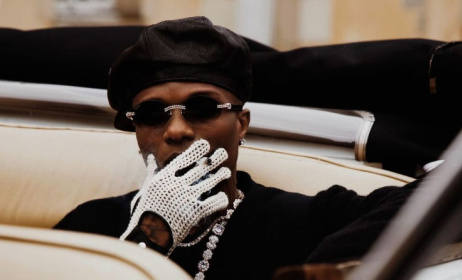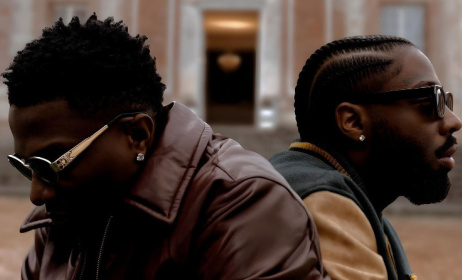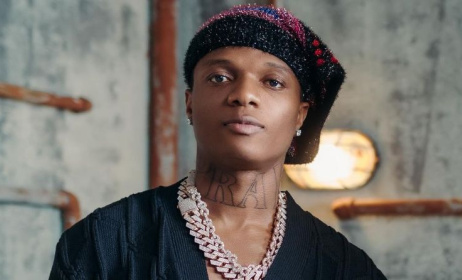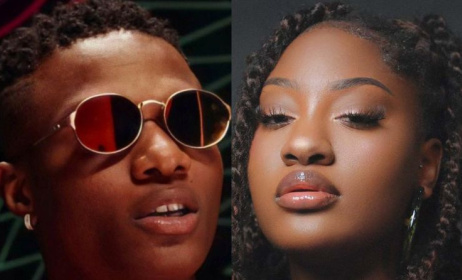Wizkid: Sounds from what other side?
Ask God and he’ll tell you how one needs an overdose of self-belief to become a successful creator of anything. But not even “Let there be light” amounts of self-belief could forewarn Wizkid of the coming galactic trajectory of his career as late as, let’s be frank, 2014.
 Sounds from the Other Side...is a blatant statement of Wizkid’s new internationality. Photo: Billboard
Sounds from the Other Side...is a blatant statement of Wizkid’s new internationality. Photo: Billboard
But here we are. If Wizkid was Nigeria’s biggest act—no mean feat in itself—in 2015, he is the biggest Nigerian act in the world right now, competing favourably with, gasp, Fela, in name recognition. This traces back to the release of Ojuelegba. With that song, Wizkid achieved lift-off. One small step for Skepta; a giant leap for Wizkid.
Sounds from the Other Side, by conception, is a blatant statement of Wizkid’s new internationality. If we are to take “other side” symbolically, we might as well accept its suggestions of novelty, of difference. It’s a setup, because listening is anticlimactic. In 2017, what can count as an “other side” to a Nigerian listenership? What, in this album, have we not heard before?
The internet in its many manifestations, Wizkid concedes to Ebro Darden, has made this a moment like no other for African music. The bar for entry is rather low. Discovery on the other side is not necessarily the dedicated art or rigorous pursuit it once was. The time lapse between production here to consumption anywhere else is as short as the travel of a click or two. One Dance, for instance, emerged from a Drake encounter with Wizkid’s Instagram page. Compare that to, say, Paul McCartney, having to travel down to Lagos to experience and attempt to incorporate Fela’s sound.
The other side of that positivity is what counts as novel has shrunk. Mainstream music in the USA is largely mainstream music in Nigeria, when you correct for Nigerian music. Listen to Nigerian radio, or examine the charts on Playdata. Drake, Chris Brown, Major Lazer, Diplo, Trey Songz, Ty Dolla $ign are, to varying degrees, very much pieces of the mosaic of music in Nigeria, as are reggaeton, EDM, dancehall or even House.
There are overt intimations of Major Lazer’s Watch Out for This in African Bad Gyal. In orientation, Come Closer is not much different from Rihanna’s Work, Caribbean patois, minimalism and all. (Is that Drake in there too?) That Caribbean vibe, the backbone running through SFTOS, has seen quite a bit of action from Drake too, the magpie who is one of English North America’s foremost tastemakers.
Sweet Love takes its place in a new Afrobeat tradition inaugurated by Ojuelegba (Wizkid’s magnum opus), a tradition that blunts the sonic and political edge of Fela’s music. With its subtle Caribbean vibe and its interesting take on House via Latin funk, All for Love, featuring the dulcet-voiced Bucie, is perhaps the most accomplished musical achievement on the Sounds from the Other Side project. But haven’t we heard this before—and better—on Seyi Shay’s Yolo Yolo? And the prize for Purest Nigerian Take on House must go to Wande Coal, for Iskaba.
Examples abound if Wizkid had been putting an ear or two out for just what a sound from the other side might sound like. Wale’s My Love, is a particularly ironic example, given that on the chorus is Wizkid, appropriating his chorus on Sweet Love on the song’s smooth blend of highlife and electronic music. Ed Sheeran’s Highlife-inspired Bibia Be Ye Ye, written in Ghana with Fuse ODG, is another. Further afield is Justin Timberlake’s Let the Groove Get In, which channels Alhamdulillai, the first track off Burkina Faso: Rhythms of the Grassland, an obscure 2002 folk album originally released in 1983 as Rhythms of the Grassland: Music of Upper Volta Vol II.
SFTOS will not set the world alight here or on the other side—that much has become apparent: the hoopla surrounding its release has quietened considerably. And we’re barely out of July. The tracks that will do well on this project were released before July. The rest is pretty much deadweight, Nothing here pushes the envelope, a prerequisite if you're engaging on someone else's terms. Lutherize Christianity, pentecostalize it. But don’t struggle over Catholicism. Because that thing they say about the Pope is true: No se debe ser mas papista que el Papa.
There’s a sense, a narrow sense, in which to read SFTOS as something novel. Much of it is uncharted territory for Wizkid, a learning curve on the international stage, and it is heartening to hear him speak—to Ebro Darden—of finally finding a sound (that thing writers would call a voice). It’s heartening precisely because it is currently near impossible to distil a uniquely Wizkid sound in the same way, for example, a Mr. Eazi sound can be pinned down. What, really, is Wizkid and what qualities—graft and Providence aside—stand him apart from his peers? Individual talent is acknowledged and accounted for, but too much of the whimsical Divine seems to be implicated in his success.
Unpindownability is not to be mistaken for uniqueness. Wizkid's sound is attractive but not distinctive. If rumours of an imminent album or two are to be believed, perhaps Wizkid might then begin to bridge the chasm between attractiveness and distinctiveness. The kid, who knows, may well become a man.

































Comments
Log in or register to post comments